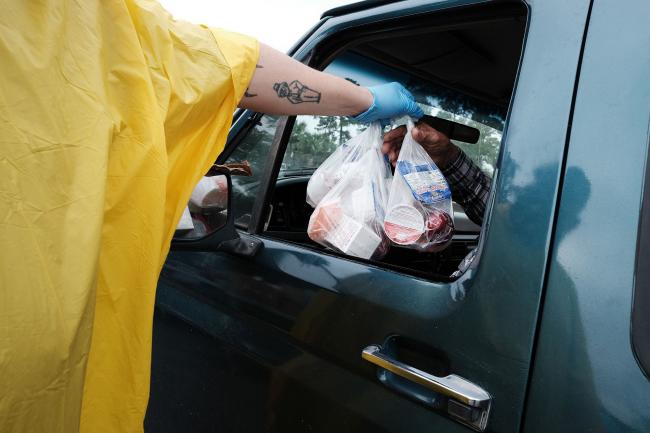(Bloomberg) -- The nearly $1 trillion in stimulus checks during the pandemic likely had no long-lasting impact on recipients’ financial well-being, and in some cases increased their feelings of distress around money, a study found.
Researchers surveyed more than 5,000 Americans living in poverty to find out how effective the unconditional cash transfers were. Recipients increased expenditures for a few weeks, but the extra money had no long-term impact on spending or savings, according to the paper, published Tuesday.
“These results suggest that the cash allowed participants to spend more money, improving objective financial outcomes for the few weeks immediately following the transfer and then dissipating thereafter,” wrote the researchers, led by Ania Jaroszewicz at Harvard University’s Institute for Quantitative Social Sciences.
The survey covered three groups: the first received a one-time payment of $500, the second got $2,000 and the third nothing.
In the two weeks following the payment, the first and second groups spent $26 and $82 more per day on average, respectively, compared with the control group. Both groups also had higher bank balances immediately after getting the money. Expenditures and bank balances returned to levels similar to that of people who received no payment about four weeks later.
The cash recipients also did more poorly on financial, psychological and health measures in the survey. This is consistent with the notion that receiving some money -- but not enough -- makes the gap between needs and resources more salient for low-income individuals, which is source of distress, according to the paper.
“These results hint that while the cash did not actually produce worse outcomes in some objective sense, in some situations it made recipients feel worse,” the researchers wrote.
In the survey, participants mainly used the checks to make debit and credit card payments, pay bills, buy food, shop and fund transportation. The study, which was conducted from July 2020 to May 2021, found no evidence that the extra money helped reduce bank fees, including overdraft and late payment penalties.
Read More: Cash Payments Were Lifeline for Low-Income Americans in Pandemic
The researchers pointed out that the three rounds of stimulus checks in the US covered small amounts of money compared with people’s financial needs, especially those living in poverty. The checks ranged from $600 to $1,400 for each adult and $500 to $1,400 per qualifying child.
Larger amounts could have a long-term impact. That type of relief package would be costly, though, so it may be more useful to partner future cash payments with increased community resources, the researchers wrote.
©2022 Bloomberg L.P.

